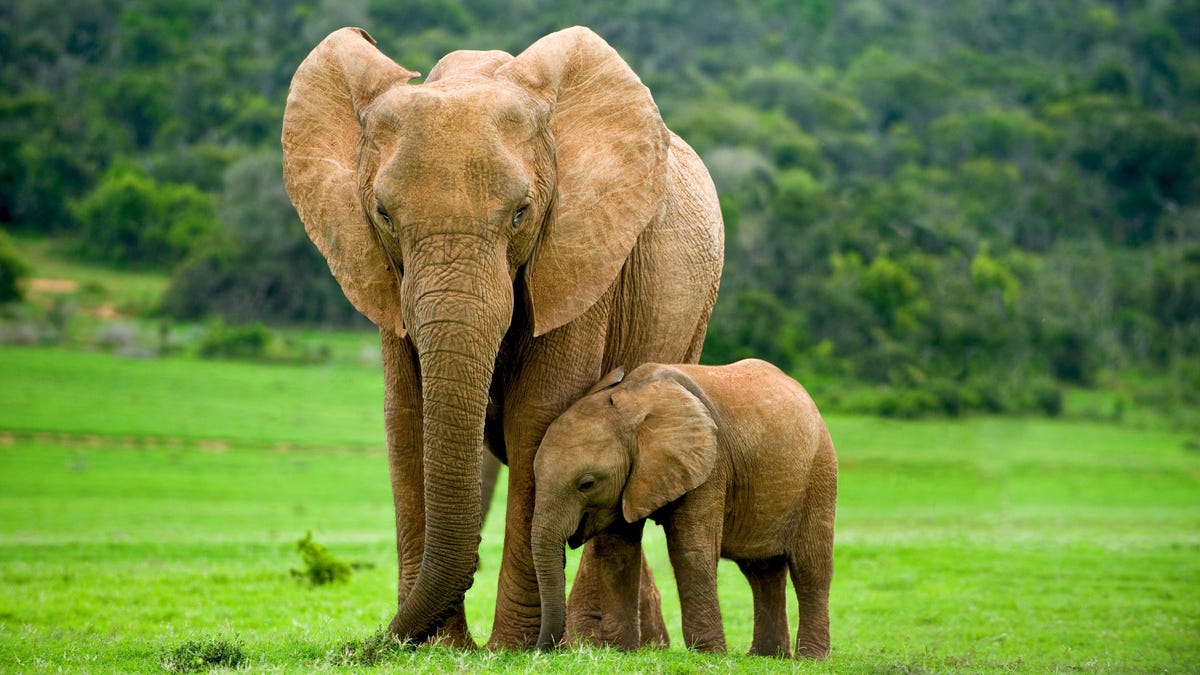
A group of scientists is making a provocative argument about the nature of elephants. They posit that these gentle giants have achieved self-domestication, meaning they’ve self-selected for traits commonly found in humans and our domesticated animals, particularly reduced aggression. Not every outside expert agrees with the team’s conclusions, though.
The research comes from scientists in the U.S., the Netherlands, and Spain. Their argument is premised on an idea about the evolution of humans themselves, called the human self-domestication hypothesis. This argues that our human ancestors underwent natural selection for traits that allowed us to become more cooperative with one another, which then set the stage for civilization to emerge. As it turns out, these traits are also the ones we encouraged in animals that we subsequently domesticated: less aggressive and friendlier behaviors toward others, less outwardly fearsome and more “baby-like” physical features, and complex vocal communication.
Advertisement
Some scientists have argued that self-domestication in other species has contributed to our later taming of them, such as populations of wildcats or wolves that had evolved to tolerate humans before we truly tried to mold them into our companions. But the strongest evidence for self-domestication outside of humans has likely come from our primate cousins, the bonobos—animals well-known for their generally peaceful and playful social behavior. Now, in a paper published Monday in the Proceedings of the National Academy of Sciences, researchers are making the case that elephants also fit the bill for self-domestication.
Like humans and bonobos, for instance, all modern elephants (three species in total) are thought to display relatively low levels of aggression, high levels of “prosocial” behavior toward each other, and an extended period of juvenile development. Overall, the researchers identified 19 traits associated with self-domestication shared by humans, bonobos, and elephants. They also took a look at the genomes of African elephants and found evidence of over 600 genes that seemed to have rapidly evolved (relatively speaking), with at least some of these genes having previously been linked to domestication.
G/O Media may get a commission
Advertisement
Advertisement
“Our findings support the idea that elephants, like humans and bonobos, may be self-domesticated,” the study authors wrote.
As for why this might have happened, the team offers some speculation. For one, elephants have few natural predators and generally aren’t picky eaters, which could have afforded them the time and resources to become more socially adept. It’s also possible that something happened in the distant past that forced their ancestors to become especially dependent on each other in order to survive, behaviors that became positively selected for and then passed on.
Advertisement
The additional genetic evidence does bolster the team’s argument. But outside scientists say that a lot more research would be needed to validate this hypothesis. And it’s possible that other aspects of the elephant, such as large brains, might better explain their friendlier behavior than the process of self-domestication.
“I fear we are a long way from being able to say elephants are self-domesticated,” Richard Wrangham, a Harvard University primatologist not involved in the study who is supportive of the hypothesis, told Science Magazine.
Advertisement
Still, it’s an idea worth exploring, and it could have important implications for understanding the evolution of other animals. If elephants have become self-domesticated, then it’s likely an example of convergent evolution—when the same trait arises independently in different groups of animals (like how sharks and dolphins ended up with very similar body designs, despite being unrelated). That could also mean that self-domestication is or could eventually become more common among animals than we currently think.
Services Marketplace – Listings, Bookings & Reviews